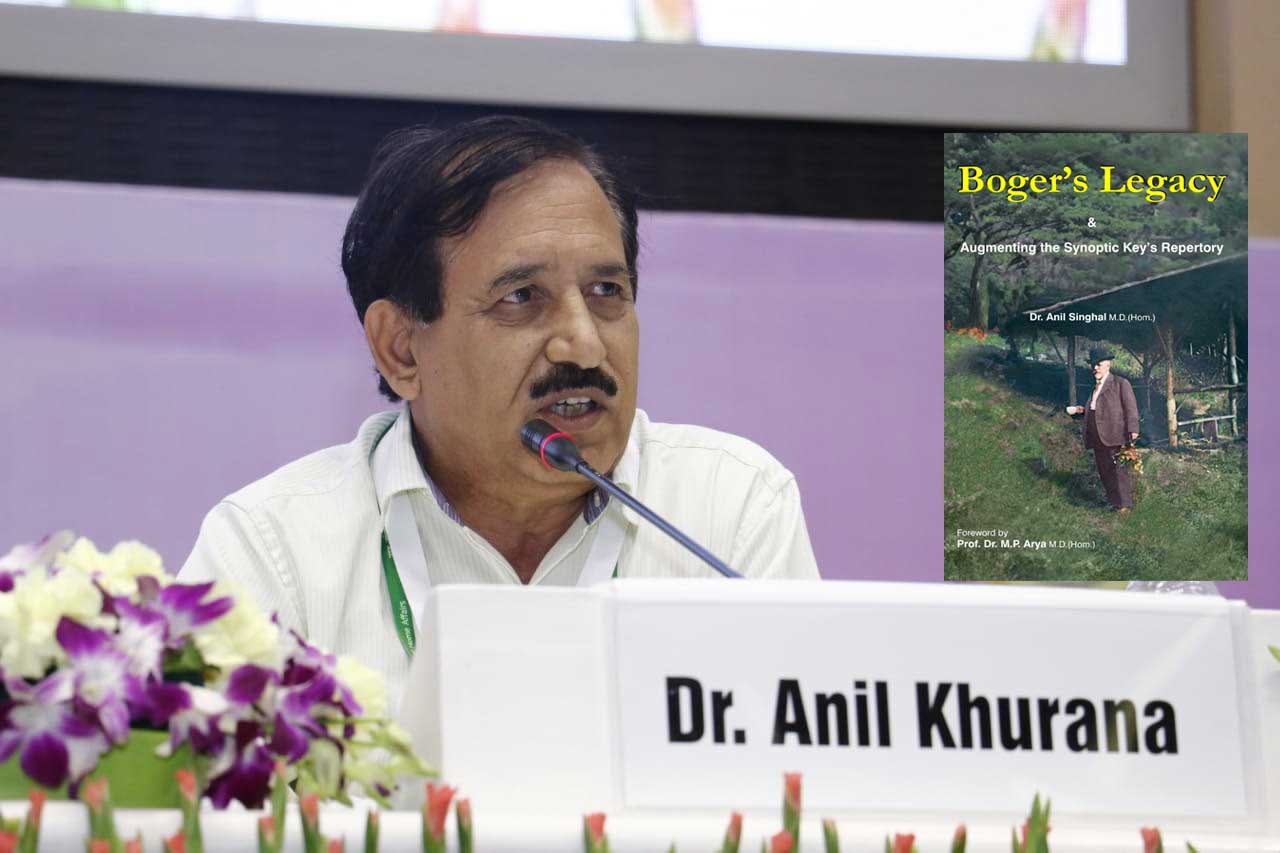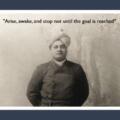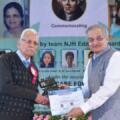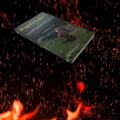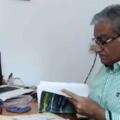It is with great honor and a profound sense of gratitude that we share a recent review of the book, “Boger’s Legacy and Augmenting the Synoptic Key’s Repertory,” penned by the esteemed Dr. Anil Khurana — Chairperson, National Commission for Homoeopathy and Formerly, Director General CCRH.
This review is not just an evaluation of the work but a testament to the enduring legacy of Dr. C.M. Boger and his unparalleled contributions to the field of Homoeopathy. Dr. Khurana’s insights, drawn from his vast experience and deep understanding of Homoeopathy, provide a valuable perspective on the relevance and impact of Dr. Boger’s work in our current practice.
In bringing this book to the Homeopathic community, aim was to bridge the gap between past wisdom and present practices, offering a comprehensive resource that resonates with both seasoned practitioners and students embarking on their journey in this noble field.
About the Reviewer:

Dr. Anil Khurana currently serves as the Chairman of the National Commission for Homoeopathy (NCH), under the Ministry of AYUSH, Government of India. The NCH is the pinnacle body responsible for setting high standards in Homoeopathic education, practice, and research. Formerly, he was Director General of the Central Council for Research in Homoeopathy (CCRH), an apex body dedicated to Homoeopathic research.
With over three decades of rich experience in Homoeopathic research, Dr. Khurana has played a pivotal role in advancing Homoeopathy in India and globally. He completed his graduation from Nehru Homoeopathic Medical College and Hospital, New Delhi, and went on to earn his MD in Homoeopathy from the University of Rajasthan, Jaipur. His academic journey also includes a Post-Doctoral Fellowship in HIV-AIDS from the University of California, Los Angeles, and a qualification in Bioethics from the ICMR-IGNOU joint course.
Dr. Khurana is known for his extensive research, having published over 100 papers in national and international journals and presented more than 80 research papers worldwide. His work spans various facets of Homoeopathic research, including clinical, basic, and fundamental research, as well as drug standardization and clinical verification.
Dr. Anil Khurana wrote to Dr. Anil Singhal “Kudos to you for splendid piece of work. Following are my views on this inspiring work”.
The Review:
“
The book titled “Boger’s Legacy and Augmenting the Synoptic Key’s Repertory” by Dr Anil Singhal, whom I know since College days, is unique and insightful piece of work on the contribution of Masterly work of Dr. C M Boger.
It’s a thought provoking and fascinating read that carries you to journey of hard work taken up by the legend of Homoeopathy who not only achieved all success in his practice but left out Legacy of his works which is still inspiring many in the Homoeopathy Profession.
The Author has beautifully covered various aspects of the legendary Homoeopath with rightful explanations of the important messages of Dr. Boger which every Homoeopath must remember and follow to deliver best out of their Homoeopathic Practice.
The author receives accolades with his extra efforts by augmenting the Synoptic Key which adds value to this biopic.
It’s a must-read book for all who endorse and practice Homoeopathy.
This is worth recommended for PG students especially doing post-graduation in Repertory.
I could perceive the various literary works in the last Chapter of Homoeopathy Timelines of Boger’s Legacy and I amazed to find how Dr. Boger has covered all aspects of Homoeopathy Practice from presenting case Studies, to writing extensive and comprehensive works of BBCR in his life time.
Dr. Singhal needs real appreciation as I do believe that Champions do extra and he has proved it.
Hope future students will further augment the work by adding newer remedies in the jewel box of Boger’s Synoptic Key on the same approach through evaluation and authentication so as to carry forward the Legacy as we received today.
“
In conclusion, we extend our deepest gratitude to Dr. Anil Khurana for his thoughtful and comprehensive review. His words not only validate the efforts behind this book but also underscore the vital role such works play in nurturing the practice and education of Homoeopathy. Dr. Khurana’s insights, born from a distinguished career in Homoeopathy, provide invaluable guidance and inspiration to all who are part of this noble profession.
We are immensely thankful to Dr. Khurana for his encouraging words and for highlighting the importance of carrying forward the legacy of great Homoeopathic pioneers like Dr. C.M. Boger. It is through such esteemed recognition that we are inspired to keep striving for excellence and contributing to the Homoeopathic community.
As readers engage with Dr. Khurana’s review, we hope they too feel motivated to delve deeper into the rich heritage of Homoeopathy and take up the mantle of advancing this age-old yet ever-evolving science.
We are honoured to share in this journey with esteemed colleagues like Dr. Khurana, whose contributions continue to shape the future of Homoeopathy.
